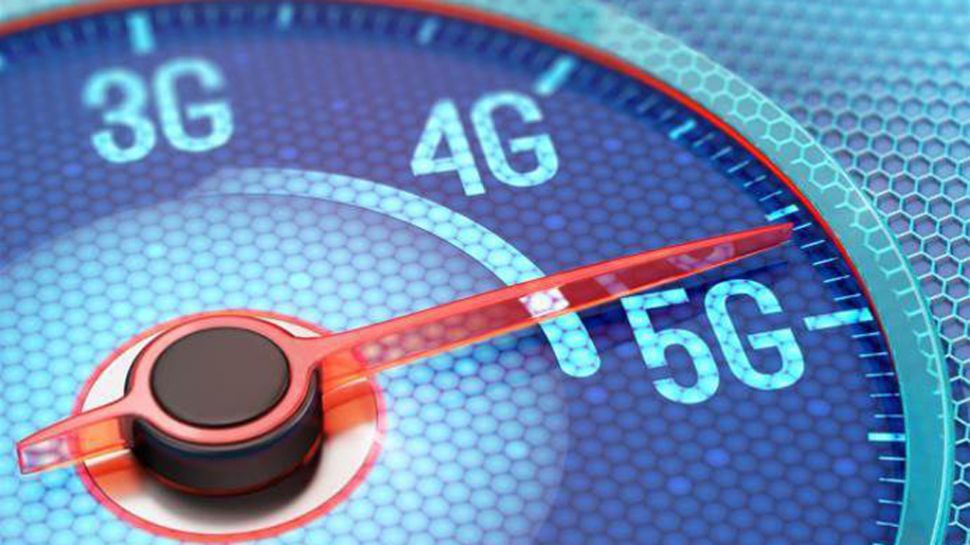UK 5G is significantly faster than Wi-Fi
5G makes speed gains but won't replace Wi-Fi any time soon

5G speeds in the UK are nearly four times faster than the average Wi-Fi connection, highlighting the potential of next-generation networks to transform connectivity.
According to testing conducted by OpenSignal, which records ‘real life’ readings from user smartphones, the average UK 5G download speed is 138.1Mbps. This compares favourably with the 34.1Mbps recorded on Wi-Fi and the 24.9Mbps on 4G.
OpenSignal found similar situations in six of the other seven leading 5G nations. In Saudi Arabia, 5G speeds of 291.2Mbps dwarf the 21.4Mbps Wi-Fi rate, while in South Korea – where there are more than 5 million 5G subscribers – the 224Mbps 5G average is much faster than the impressive 74.5Mbps recorded on Wi-Fi.
- Operators reach £1bn shared rural network deal
- Operators discuss network sharing
- What is 5G? Everything you need to know
UK 5G speeds
Of the eight leading 5G nations, the US is the only country to have faster 5G than Wi-Fi. The average 5G speed stateside is 52.3Mbps while Wi-Fi comes in at 59.8Mbps but this owes but this owes much to the fact that American 5G networks use low-level spectrum that prioritises coverage.
In the UK and elsewhere, 5G is powered by mid-range spectrum that delivers greater capacity and speeds, albeit over a smaller physical area – delivering faster bitrates.
The US also had the smallest speed advantage over 4G, with 5G only nearly two times as fast. However this advantage will increase as the US starts to use high and mid-band airwaves in urban areas, with millimetre Wave (mmWave) spectrum already used to enable 5G Fixed Wireless Access (FWA) broadband.
However speed is only part of the equation. While 5G is available on 34.9 per cent of occasions in Kuwait, this figure is as low as 5.2 per cent in the UK. The US focus on coverage means availability is relatively high at 12.7 per cent.
Sign up to the TechRadar Pro newsletter to get all the top news, opinion, features and guidance your business needs to succeed!
What is clear is that the rollout of 5G is reversing the traditional speed advantage of fixed line networks in developed markets. Although mobile outperforms fixed in many countries, these tend to be developing economies that are ‘mobile-first’ due the lack of physical infrastructure. Of the eight 5G leaders, only Australia and Saudi Arabia have 4G that outperforms Wi-Fi.
Investments in full fibre infrastructure will provide a boost to fixed line connectivity and OpenSignal says 5G will not replace Wi-Fi in the immediate future. It, like most analysts, believe the two will be complementary technologies with 5G and Wi-Fi 6 helping to accelerate network convergence.
However it says the capacity and speed benefits of 5G are clear for all to see and that the disruption caused by coronavirus should not derail progress – nor should widely disproven conspiracy theories.
“All of these 5G Availability results underline that we are still in the initial phase of 5G deployments,” said Ian Fogg, an analyst with OpenSignal. “For the vast majority of the time, 5G users continue to connect to older mobile technologies, notably 4G, and that amount ranges from approaching 70 per cent of the time to almost 95 per cent of the time, depending on the country.
“For 5G to become the mainstay of the mobile experience, operators, regulators, consumers and governments should look to widen 5G rollouts and accelerate 5G adoption so more people can benefit from the greatly superior 5G mobile experience.”
- Here are the best mobile phone deals for May 2020
Steve McCaskill is TechRadar Pro's resident mobile industry expert, covering all aspects of the UK and global news, from operators to service providers and everything in between. He is a former editor of Silicon UK and journalist with over a decade's experience in the technology industry, writing about technology, in particular, telecoms, mobile and sports tech, sports, video games and media.